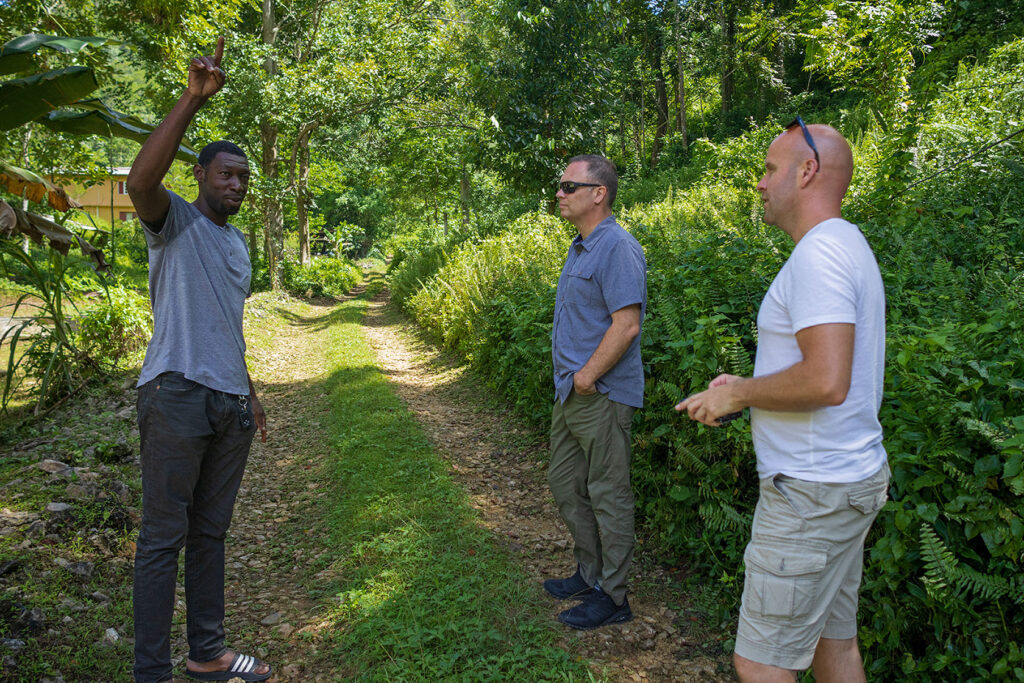A missionary is sent to the field with great excitement and anticipation.
The busy years of preparation are nearly over. Training is complete; support is raised; passports and visas are in hand; and household items are ready to ship. The sending church holds a commissioning service, exhorting the missionary and their family, friends, and supporters to pray and communicate often with each other. And then, the missionary’s journey begins.
Anywhere from two to five years later, the missionary stands again in the pulpits of supporting churches or sits in the homes of supporting individuals. By now, the missionary has invested years in assimilating into the language and culture of a new nation, developing friendships among the people the missionary went to serve and the missionary colleagues God provided. Giving, loving, praying, helping, witnessing, discipling, preaching, teaching, laughing, crying, fighting through sickness and health, and gaining and losing—all of this is in the missionary’s memory and heart.
Now it is time to report to those same churches and friends who have supported the missionary’s ministry.
“How can I summarize several intense years of immersion into the lives of people, their culture, and their spiritual needs in the short time allotted?” the missionary wonders.
Some of those who listen to the missionaries pour out their hearts have read their letters and faithfully prayed for them. Others, though interested in their work, have been too busy to read their letters and may have forgotten to pray.
Many missionaries hear questions about food, clothing, and other aspects of the culture in which they serve, all while waiting for one perceptive question that could open the door to a deeper discussion about the truly important experiences of life and ministry among those precious people. If the missionaries don’t find these meaningful conversations, frustration can set in—based on the inability to adequately represent what they have learned and seen God do during the preceding years. Frustration can be followed by resignation—not from serving as a missionary, but to the expectation that reporting will always be like this.
Jesus said, “If anyone has ears to hear, let him hear.” This was an important command to the many who followed Jesus, some of whom needed to become more than casual listeners to Jesus or needed to abandon the personal agendas that kept them from really listening. It is also an important principle for those who send missionaries today. Family, friends, and supporters must be sensitive and responsive to their missionaries’ need to be actively, truly heard when they return from the field.
One of the final steps in the sending process is to listen. Supporters must prepare well for face-to-face reports from their missionaries through reading, prayer, and a commitment to listen carefully to everything the missionary says—and doesn’t say. Both a casual listener and a preoccupied listener do not demonstrate proper commitment. The significance of what God is doing in the world, and in and through the lives of the missionaries and their people group, is too great to let pass with indifference or a yawn. If a missionary does not communicate the most important aspects of their life and ministry, a good listener must recognize it and draw them out. There is always so much more that needs to be said—and heard—for the benefit of the missionary and their ministry.
Listening Well
Here are nine practical ideas for sending missionaries well through listening. Whether you are part of a church supporting a missionary or giving toward their ministry individually, it is important to have ears to hear.
- Pray with your missionary, whether one-on-one or publicly in a church service. The following requests can guide your prayers:
- Pray for the missionaries as they leave the field for furlough or as an end to their assignment; this can be physically and emotionally difficult.
- Pray for the transition of the missionaries to life in their sending country.
- Pray for protection of the missionaries as they travel and report to supporters.
- Pray for preparation of the hearts that will hear about the missionaries’ ministry.
- Pray for a good reception and hospitality for the missionaries among the churches and individuals they will visit.
- Prepare questions in advance about the missionaries’ work done and the people group they serve. Often prayer letters, personal communications, and general research will be helpful in developing these questions.
- Prepare to host the missionaries or help them find accommodations that will contribute to the ease of meeting with them. Set aside as much time as possible for meeting with them, balancing this with their need for rest.
- Provide adequate time in your church service or personal meeting for a detailed and thorough presentation.
- Listen carefully to their presentation and be prepared to ask them to elaborate so that you can be fully aware of the ministry and the people you are supporting. Listen carefully enough to the presentation that you could successfully pass a quiz on the content.
- Encourage the missionaries to expand on their presentation when anything needs further explanation. Be specific about any concerns you might have about their work or the presentation of it, addressing these concerns kindly and graciously in a one-on-one conversation. As appropriate, ask the missionary how they are doing personally. Listen, empathize, and offer to help as possible.
- Pray with the missionaries about their needs, including their support and the needs of the ministry in their absence.
- Make sure their personal needs are met and thank the missionaries for their faithful service.
- Accept graciously their expressions of appreciation for your part in their ministries.
Through listening well to the hearts of missionaries, supporters can effectively uphold their role in the sending process.




